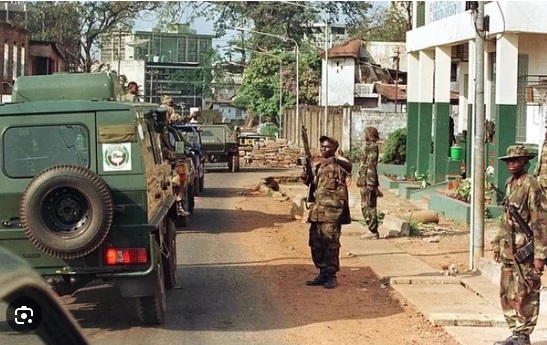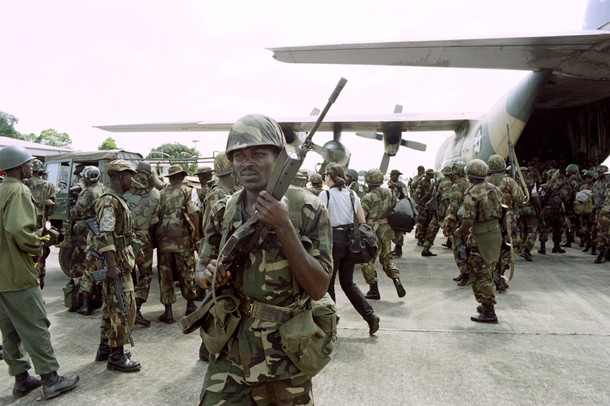On Thursday, the Economic Community of West African States (ECOWAS) directed its standby force to reinstate the constitutional order in the Niger Republic.
ECOWAS President, Omar Alieu Touray, announced the decision after concluding the commission’s Extraordinary Summit in Abuja, where he presented the ECOWAS resolution regarding the military junta in Niger.
Furthermore, ECOWAS has appealed to the African Union (AU), affiliated countries, and other institutions to back the resolution set forth by the regional organization.
The body emphasized that their attempts to engage in dialogue with the military junta in the Niger Republic have been consistently dismissed by the coup leaders. They also voiced their condemnation of the ongoing detainment of President Mohamed Bazoum and his relatives.
The ECOWAS decision will mark another major military intervention by the regional body in a coup crisis. The last intervention of this kind occurred in 1997 when ECOWAS sent an ECOMOG force led by Nigerian troops to Sierra Leone to engage the rebel forces in a bid to restore democracy.

The ECOWAS Ceasefire Monitoring Group (ECOMOG) has a mandate to uphold peace and reestablish democracy in West African nations threatened by coups or rebel insurgencies.
In 1997, ECOMOG was deployed to Sierra Leone after a coup that overthrew the democratically elected government of President Ahmed Tejan Kabbah, led by Major Johnny Paul Koroma.
To counter the rebels and restore democracy, ECOWAS dispatched an ECOMOG contingent, predominantly comprising Nigerian forces, to Sierra Leone in the same year.
Prior to the intervention, Nigeria had purportedly given the insurgent leaders a deadline to relinquish power and reinstate the elected president.
However, after talks aiming for the peaceful return of the president faltered, the ECOMOG forces, spearheaded by Nigerian soldiers, opted to confront the rebels.
This military action commenced with Nigerian naval units off Freetown launching an artillery assault on the nation’s capital on June 2, 1997.
By March 1998, the ECOMOG soldiers had vanquished the rebels, and Kabbah was reinstated, marking the mission’s success.
Nevertheless, ECOMOG’s intervention wasn’t without controversy. Accusations of human rights abuses emerged in its wake.
Critics claimed that Nigeria acted without a clear mandate from other West African leaders. Furthermore, allegations arose that the military targeted boats laden with rice, leading to the death of numerous civilians at a nearby market.












We really appreciate the effort of ecomog in their intervention to sierra Leone, today we are enjoying 22years of peace . May the soul of the does departed both soldiers and civilians rest in peace
Military intervention might Create a proxy war in the continent. Our leaders should be engaged in diplomatic conversations for the betterment of the continent and Niger to be specific. Our leaders should stop being used as Western poppets Love your people Western countries are not in your interest, Pay Attention.